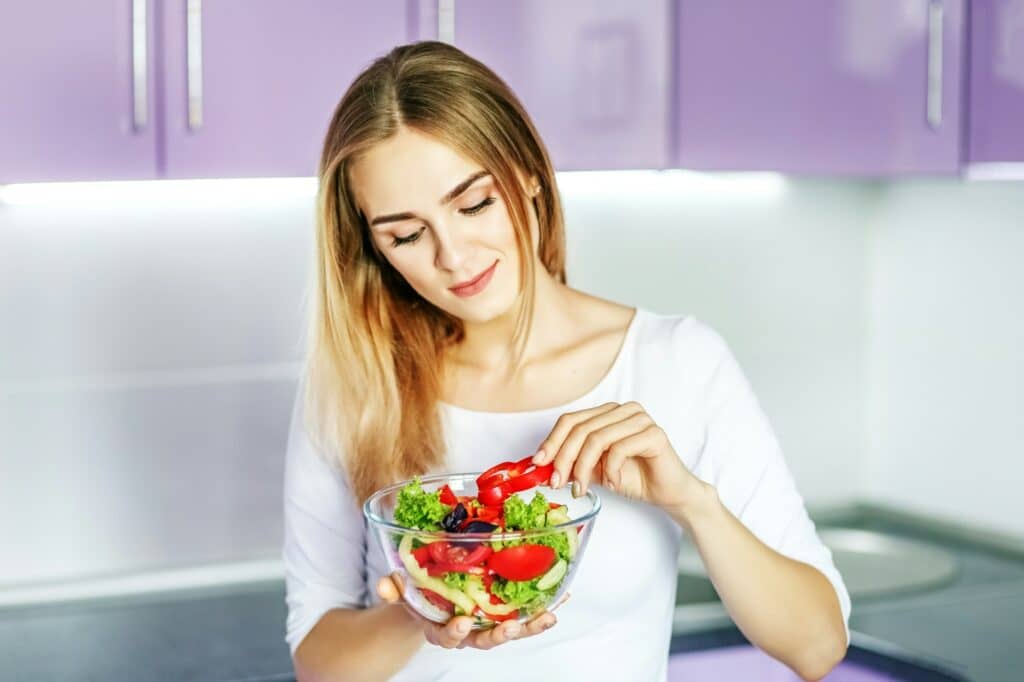Unhealthy Eating Habits Have an Impact on the Condition of Your Skin
Your skin is a reflection of your inner health, and what you eat has a direct impact on its appearance. If you've noticed blemishes, a dull complexion or signs of premature aging, it's time to re-evaluate your eating habits. Find out how some common foods can harm your skin's health, and learn how to adopt healthier choices for a glowing complexion.
The Impact of Sweet Food on Acne
Glycemic Index and Acne
A diet rich in sugars can stimulate the onset ofacne. The link between a high glycemic index and acne is well documented. Foods with a high glycemic index, such as white bread, potatoes and pastries, rapidly raise blood glucose levels. This leads to increased insulin secretion, which in turn stimulates the production of sebumone of the main causes of acne.
Insulin and IGF-1 (insulin-like growth factor) are two major players in this process. Insulin stimulates the production of IGF-1, which increases androgen levels in the body. Androgens, male hormones also present in women, promote sebum production. This excess sebum, combined with hyperkeratinization (thickening of the skin), clogs the porescreating an environment conducive to acne.
Dairy Products and Acne
Dairy products, although low in glycemic index, can also exacerbate acne. They stimulate insulin and IGF-1 production. What's more, some dairy products contain hormones and bioactives that can affect the skin. Leucine, an amino acid found in large quantities in meat and dairy products, activates mTORC1, a protein involved in sebum production and cell growth.
It's advisable to cut down on milk, cheese and yoghurt if you're prone to acne. Plant-based alternatives such as almond or soy milk may be beneficial.
Healthy Alternatives
For clearer skin, opt for low-glycemic foods such as green vegetables, low-sugar fruits, whole grains and lean proteins. These foods keep blood glucose levels stable, thereby reducing sebum production.

Fat and Dullness
Toxin build-up
A diet too rich in saturated and processed fats can make the dull complexion and strain organs such as the intestines. When these fail to eliminate excess fat, toxins are transferred to the skin, resulting in a grayish, yellowish or dull appearance. Pores can also dilate and skin can become shinier.
Saturated fats, found in fatty meats, deli meats and certain dairy products, are particularly difficult to metabolize. They can cause systemic inflammation, manifesting as redness and blemishes on the skin.
Foods to avoid
To preserve a luminous complexion, it's advisable to limit consumption of fatty meats, deli meats, processed foods, dairy products and tropical oils such as palm and coconut oil. These foods can overload the liver and kidneys, reducing their ability to eliminate toxins effectively.
Healthy Alternatives
Favor healthy fats from plant sources such as olive oil, avocados, nuts and seeds. Omega-3 fatty acids, found in oily fish such as salmon and flaxseed, are also excellent for the skin. They reduce inflammation and maintain hydration of the skin.
The Effects of Alcohol on the Skin
Dehydration and aging
Alcohol is a diuretic that dehydrates the skin, making it dull and less elastic. In addition, alcohol accelerates aging by reducing the telomeres of skin cells, worsening the signs of ageing and increasing the risk of chronic disease.
Alcohol not only dehydrates the skin, it also deprives it of essential nutrients. Vitamins A and C, crucial for skin regeneration and repair, are particularly affected. Deficiency in these vitamins can lead to skin that looks dryerwrinkles and loss of elasticity.
Inflammations and skin problems
Regular alcohol consumption can lead to skin conditions such as rosaceapsoriasis and seborrheic dermatitis. Alcohol also acts as a powerful vasodilator, causing visible redness and inflammation on the face and other parts of the body. This redness is often exacerbated in people with sensitive skin.
Alcohol also raises blood glucose levels, as do foods with a high glycemic index. This disrupts the production of collagen and elastin, two essential proteins for firm, youthful skin.
Healthy Alternatives
To minimize the impact of alcohol on the skin, we recommend limiting alcohol consumption and drinking plenty of water to stay hydrated. Herbal infusions, vegetable juices and antioxidant-rich smoothies can also help detoxify the body and improve skin radiance.
By adopting a balanced diet and limiting consumption of foods with a high glycemic index, saturated fats and alcohol, you can significantly improve the appearance and health of your skin. Take care of your diet to reflect healthy, glowing skin. By incorporating nutrient-rich foods, healthy fats and staying well hydrated, you'll give your skin the best chance of staying healthy.






